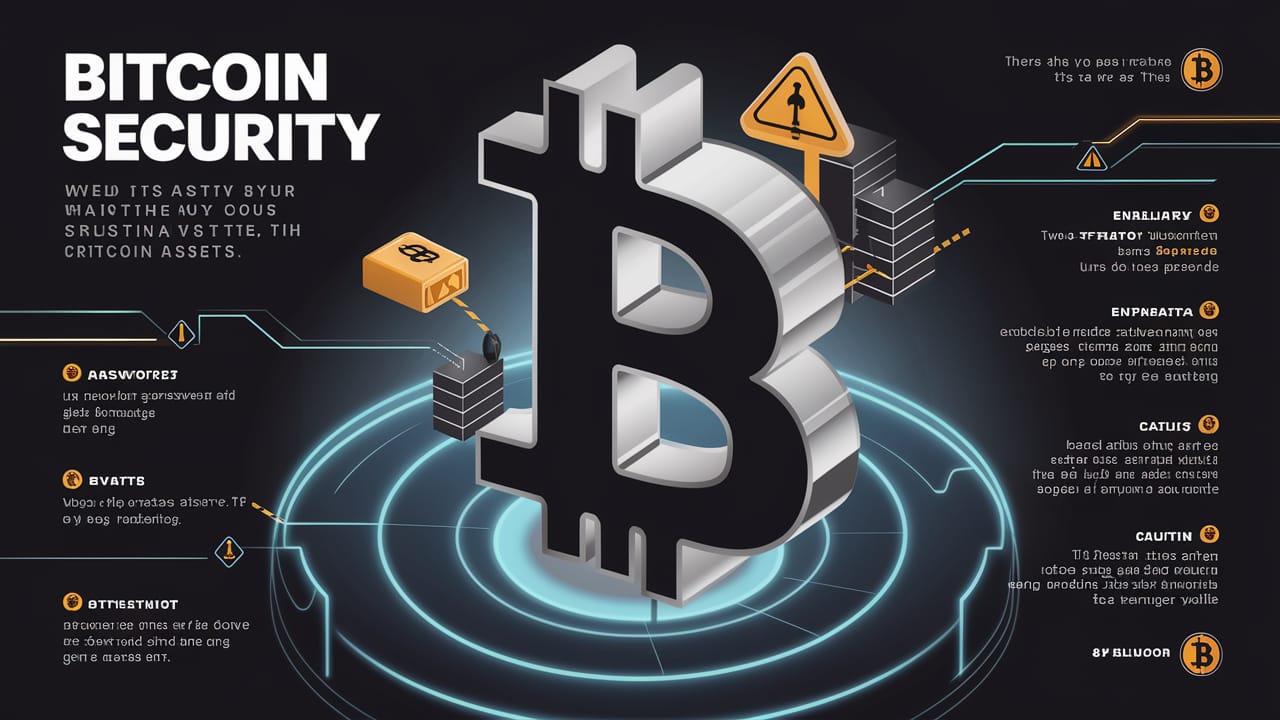- whyCrypto
- Posts
- Bitcoin Security Guide – Avoiding Scams and Protecting Your Assets
Bitcoin Security Guide – Avoiding Scams and Protecting Your Assets
A Practical Approach to Ensuring Your Crypto Assets Safety
Bitcoin Security Guide – Avoiding Scams and Protecting Your Assets

Cryptocurrency Security
With the rise in popularity of Bitcoin, scams, fraud, and theft have also increased. This guide outlines how to protect your Bitcoins, offering practical tools and advice.
Summary: How to Avoid Bitcoin Scams?
Never share your private key or seed phrase.
Use the Bitcoin Scam Test for unknown services.
Avoid phishing sites.
Use strong, unique passwords for all related accounts.
Enable two-factor authentication (2FA).
Use a VPN or secure network for accessing your Bitcoin accounts.
1. The Bitcoin Scam Test
Use this 11-question test to evaluate any unknown Bitcoin service or website:
Does the site promise an unusually high return (e.g., over 20% annually)?
Is it related to Bitcoin mining or cloud mining?
Does the site provide detailed information about its operators (e.g., registered address, LinkedIn profiles)?
Is the domain older than six months? Check domain age. https://smallseotools.com/domain-age-checker/
Does it have a domain rating (DR) over 20? Check DR. https://ahrefs.com/backlink-checker
Are reputable websites linking to it? Check backlinks. https://ahrefs.com/backlink-checker
Are there any Google reviews claiming it is a scam?
Are positive reviews promoting it with referral links?
Are there negative reviews on Bitcointalk? Search Bitcointalk. https://bitcointalk.org/index.php?action=search
Are there negative reviews on Reddit’s Bitcoin community? Search Reddit. https://www.reddit.com/?feed=home
Does it promise something that seems too good to be true?
2. Is Bitcoin Safe?
Bitcoin’s technology is secure, but the human element is often the weakest link. When Bitcoins are stolen, it’s usually due to carelessness by the holder, not a flaw in Bitcoin itself. To keep your Bitcoins safe, remember: only you should know your wallet’s private key. No legitimate site or person will ever ask for it.
3. What to Do if You’re Scammed
If you fall victim to a scam, consider the following actions:
Share your experience in forums or the comments section of related posts.
Report the website or service to the relevant authorities.
Report the scam on review sites like Trustpilot, BitTrust, and BadBitcoin.
Consider legal action, though it may not always be worth the time and expense.
4. Common Bitcoin Scams
Nigerian Prince Scams: Fraudsters ask for Bitcoin under false pretenses. Avoid sending Bitcoins to unknown individuals.
Private Key Scams: Scammers trick you into sharing your private key or seed phrase, often by posing as trusted figures. Never share your private key.
Phishing Scams: Fake emails or websites mimic legitimate services to steal your login credentials. Always verify email addresses and URLs, and avoid clicking on suspicious links.
Cloud Mining and Ponzi Schemes: Scams promising high returns through cloud mining or investment schemes. Use the Bitcoin Scam Test to evaluate such services.
5. Protecting Against Bitcoin Theft
To protect your Bitcoins from theft, follow these guidelines:
Use Strong Passwords: Create complex passwords with a mix of characters and avoid reusing passwords across different accounts. Consider using a password manager.
Enable 2FA: Use apps like Google Authenticator or Authy for two-factor authentication instead of SMS-based 2FA.
Use Trusted Networks: Access Bitcoin services only on secure, trusted networks. Avoid public Wi-Fi or use a VPN.
6. Additional Safety Tips
Double-Check Addresses: Always verify the address before sending Bitcoins. Use copy-paste or QR codes to avoid errors.
Use Escrow Services: For transactions with untrusted parties, use a reputable escrow service like Bitrated.
Wait for Confirmations: For large transactions, wait for at least six confirmations to ensure the transaction is irreversible.
By following these guidelines, you can significantly reduce the risk of losing your Bitcoins to scams or theft. Stay vigilant and informed to keep your assets secure.
Conclusion
In the world of Bitcoin, security and vigilance are paramount. As cryptocurrencies continue to grow in popularity, so do the tactics of scammers and thieves. By educating yourself about common scams, using robust security measures, and staying cautious, you can protect your Bitcoins from potential threats. Remember, the key to safeguarding your assets lies in controlling your private keys, using secure practices, and continually staying informed about the latest scams and security tips. Following the guidelines in this guide will help ensure that your Bitcoin investments remain safe and secure. Stay vigilant, and protect your digital wealth from fraud and theft.
Join Our Community |
Stay ahead in the crypto market with cutting-edge AI-driven crypto trading insights. Subscribe to our Telegram channel, Rocketz AI Crypto Bot, for advanced algorithms delivering impressive returns. |
© 2024 whyCrypto. All rights reserved. |
Reply